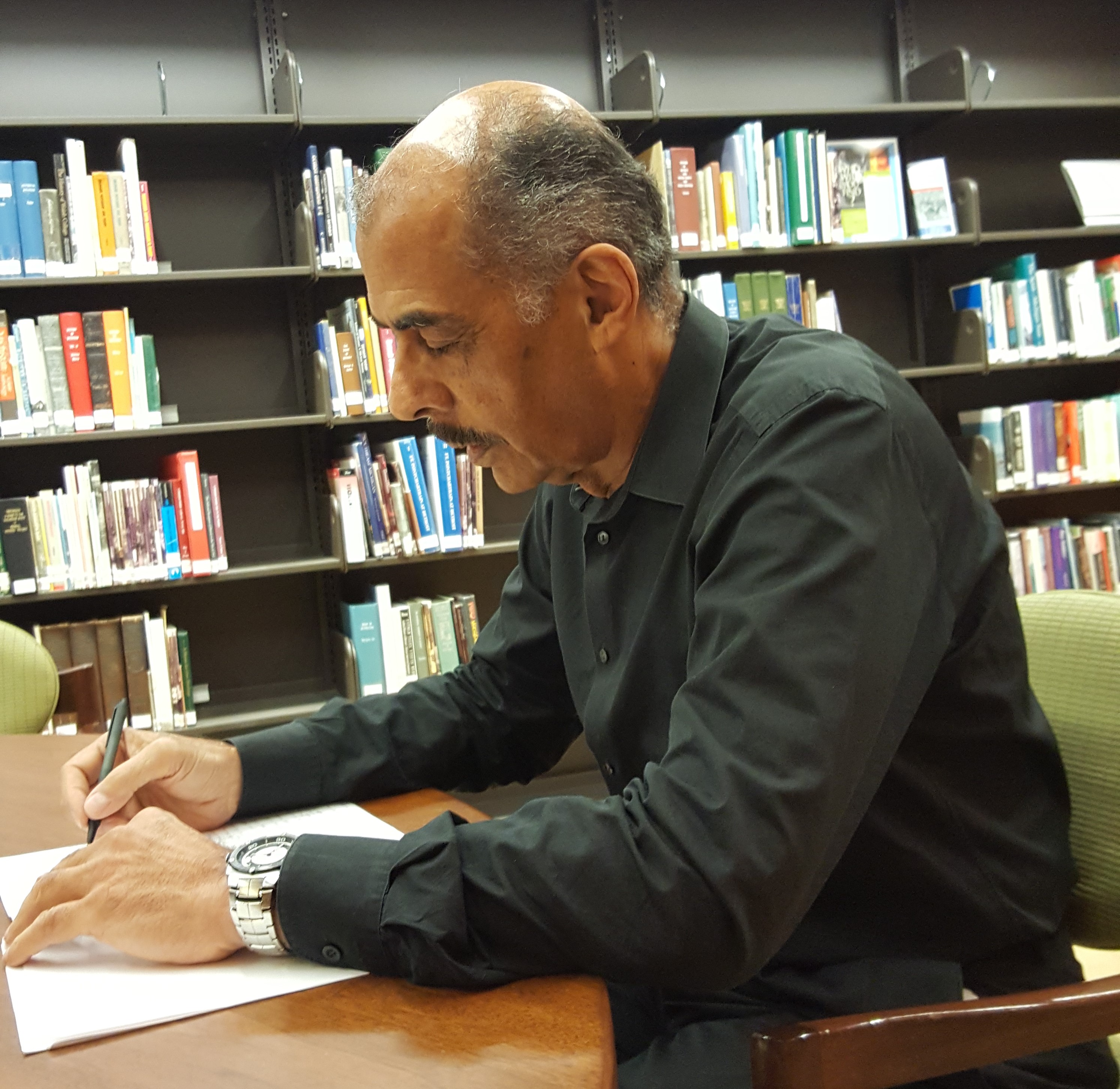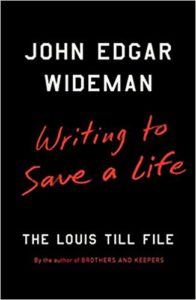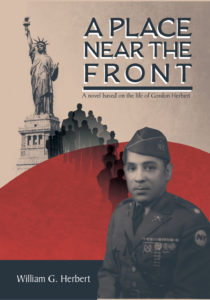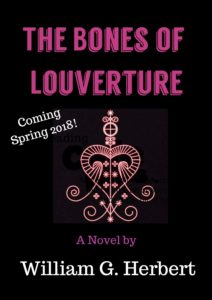 I have been pondering the concept of “writing to save a life” ever since I read, earlier this year, John Edgar Wideman’s outstanding book with those words as its title. Part novel, part investigative report, part memoir and part social commentary, this compelling story tells of the short, violent life of Louis Till, who like his son Emmett, was killed for being black and in the wrong place at the wrong time. Wideman is the same age as Emmett who was brutally murdered in 1955 at age fourteen for the alleged crime of whistling at a white woman during a visit to Mississippi from his native Chicago. Emmett’s murderers, who later bragged about the killing, were acquitted in a southern trial that made a mockery of courtroom justice. In his unusual book, the author describes how Louis, a young World War II soldier with a troubled past, was hanged for the rape of a white woman in wartime Italy after a sham military trial in which the flimsy evidence introduced by the prosecution made it clear that Till was being railroaded into a quick conviction for a crime that he likely did not commit. Since Louis was of the same generation as Wideman’s own father, the author highlighted the issues and challenges they faced as black men and fathers by using a riveting writing style that incorporated an almost a stream-of-consciousness communication between the generations of fathers and sons.
I have been pondering the concept of “writing to save a life” ever since I read, earlier this year, John Edgar Wideman’s outstanding book with those words as its title. Part novel, part investigative report, part memoir and part social commentary, this compelling story tells of the short, violent life of Louis Till, who like his son Emmett, was killed for being black and in the wrong place at the wrong time. Wideman is the same age as Emmett who was brutally murdered in 1955 at age fourteen for the alleged crime of whistling at a white woman during a visit to Mississippi from his native Chicago. Emmett’s murderers, who later bragged about the killing, were acquitted in a southern trial that made a mockery of courtroom justice. In his unusual book, the author describes how Louis, a young World War II soldier with a troubled past, was hanged for the rape of a white woman in wartime Italy after a sham military trial in which the flimsy evidence introduced by the prosecution made it clear that Till was being railroaded into a quick conviction for a crime that he likely did not commit. Since Louis was of the same generation as Wideman’s own father, the author highlighted the issues and challenges they faced as black men and fathers by using a riveting writing style that incorporated an almost a stream-of-consciousness communication between the generations of fathers and sons.
 Like all great literature, Wideman’s book creates new awareness while prompting thought and introspection. Clearly, his book brought to life one of the many untold stories of injustice visited upon citizens of color by a nation that has still not completely cured itself of the poisonous remnants of its original sin, slavery. The awful truth of how men from two successive generations of the same family could suffer similar unjust treatment and betrayal from their own country adds additional meaning to each of their own tragic lives. Including his own father into the narrative allowed for a comparison and contrast of the two fathers, an exercise that makes both men more understandable.
Like all great literature, Wideman’s book creates new awareness while prompting thought and introspection. Clearly, his book brought to life one of the many untold stories of injustice visited upon citizens of color by a nation that has still not completely cured itself of the poisonous remnants of its original sin, slavery. The awful truth of how men from two successive generations of the same family could suffer similar unjust treatment and betrayal from their own country adds additional meaning to each of their own tragic lives. Including his own father into the narrative allowed for a comparison and contrast of the two fathers, an exercise that makes both men more understandable.
 Since I had recently written a book, A Place near the Front, based on the life of my own father, Wideman’s writing about fathers and sons and his effort to save and restore the memory of a father that had been unfairly consigned to the scrapheap of failure resonated powerfully with me. My book tells the story of my father’s arrival in the U.S. in 1915 as a merchant seaman from the Caribbean island of Trinidad and his journey, as an illegal immigrant, to find his place in the promised land of America. His voyage takes him through the streets of Harlem, the halls of learning of Howard University and eventually to the trenches of World War One where he serves as a second lieutenant with the all-black 92nd Infantry Division and earns his citizenship on the field of battle.
Since I had recently written a book, A Place near the Front, based on the life of my own father, Wideman’s writing about fathers and sons and his effort to save and restore the memory of a father that had been unfairly consigned to the scrapheap of failure resonated powerfully with me. My book tells the story of my father’s arrival in the U.S. in 1915 as a merchant seaman from the Caribbean island of Trinidad and his journey, as an illegal immigrant, to find his place in the promised land of America. His voyage takes him through the streets of Harlem, the halls of learning of Howard University and eventually to the trenches of World War One where he serves as a second lieutenant with the all-black 92nd Infantry Division and earns his citizenship on the field of battle.
Since he went on to a successful married life and a long career as a dentist, my father’s reputation did not need to be saved in the same way as did Louis Till’s. What he needed, I felt, was to be saved from being forgotten. Thus my goal in writing my book was threefold. First, I wanted to tell the exciting story of a life well-lived, an inspirational life of a man who achieved great things against great odds without losing his sense of humility and humanity. Second, I wanted to create a testimony and memorial to a father who passed away when I was only eighteen, before I could look him in the eye as an adult and thank him, man-to-man, for being a great father and role model. Third, I’ve long known that my father, like most of us, was only a few generations away from obscurity, soon to be forgotten and unknown even to family, reduced to no more than a faded grave marker or perhaps a tattered photo in an old album buried in somebody’s basement. He died so long ago that none of my own children or grand children ever knew him. At this point, there are only a handful of people still alive who ever met him. Since I thought he deserved more than that, I wanted to write about his life in order to save it and his memory from completely fading into oblivion.
 Although I acknowledge how writers can salvage, restore and sustain lives of those they write about, as perhaps I did for my father in my book, and although I recognize that writing can be energizing, inspirational and that the creative process can be life-enriching, I never thought much about how writing could save or sustain a writer’s own life until recently. In an increasingly unstable and dangerous world run by unstable and dangerous leaders who do not take the actions necessary to protect the planet or the civil liberties and well-being of its inhabitants, one could easily adopt a jaundiced or fatalistic outlook on life. Combine this with the many challenges, highs and lows we all face in our personal lives and the situation is even more daunting.
Although I acknowledge how writers can salvage, restore and sustain lives of those they write about, as perhaps I did for my father in my book, and although I recognize that writing can be energizing, inspirational and that the creative process can be life-enriching, I never thought much about how writing could save or sustain a writer’s own life until recently. In an increasingly unstable and dangerous world run by unstable and dangerous leaders who do not take the actions necessary to protect the planet or the civil liberties and well-being of its inhabitants, one could easily adopt a jaundiced or fatalistic outlook on life. Combine this with the many challenges, highs and lows we all face in our personal lives and the situation is even more daunting.
For me, writing is an escape from the nihilistic attitudes that can build in such a troubled world, attitudes that can rob one of the will to survive the burdens of the mortal coil. Starting a new book and telling a new story, as I’m doing in my new historical novel, The Bones of Louverture (to be released in early 2018), is a hopeful and encouraging process that nourishes my enthusiasm for living and makes me look forward to each new day and writing session.